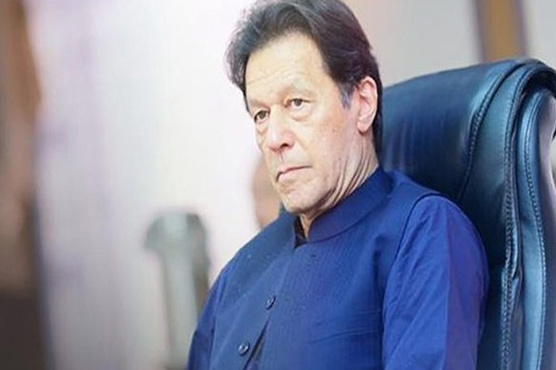PM Khan to examine measures for controlling rising inflation

The meeting will consider a strategy for controlling the inflation in the presence of top officials.
ISLAMABAD (Dunya News) – Prime Minister Imran Khan on Thursday will preside over a high-level meeting in Islamabad to consider measures for controlling rising inflation in the country.
Reportedly, Punjab Chief Minister Usman Buzdar and Khyber Pakhtunkhwa Chief Minister Mehmood Khan are also asked to attend the meeting, and give briefings on measures formulated and implemented for curbing the inflation.
The meeting will consider a strategy for controlling the inflation in the presence of top officials of the federal and provincial governments.
The meeting will also be informed about the progress achieved so far in the establishment of Price Control Authority in the provinces.
Sources told the media that a recommendation of “magistrates’ system” for controlling inflation will also be considered by the top officials.
The premier will be briefed about measures taken to reduce prices of essential commodities for the general public and steps taken for crackdown against hoarders.
Inflation rises to nine-year high
Inflation rose to 12.7 per cent year-on-year, the highest level in nine years mainly driven by an increase in prices of food items, the Pakistan Bureau of Statistics (PBS) reported on Wednesday.
Inflation, measured by the Consumer Price Index (CPI), edged up by 1.3pc over the previous month after the PBS revised its calculation methodology by setting the new base year 2015-16 instead of the previous 2007-08 financial year.
The data released on Wednesday shows that higher prices of food items have been the largest driver in overall inflation in November. It has also been observed that the prices of essential food items are higher in rural areas than in urban areas.
From the period July-November, the average inflation of 10.79 per cent was recorded as compared to 6.10 per cent of the corresponding period of the last year.
Prices of food including tomatoes, wheat, milk, cooking oil, milk products – which make up one-third of the overall food basket used to calculate inflation – were the main items causing the hike.
On a monthly basis, the CPI increased by 1.34 per cent in November as compared to 1.82 per cent in October.
Food inflation in urban areas rose by 16.6pc in November on a yearly basis and 2.4pc on a monthly basis and that in rural areas by 19.3pc and 3.4pc, respectively.
Similarly, non-food inflation in urban centres was recorded at 9.6pc year-on-year, while it was 9pc in rural areas. The rise in non-food inflation is mainly driven by an increase in oil prices over the past few months and a combined impact of depreciation of the exchange rate. The government passed on this increase to domestic consumers.
Non-food prices also remained under pressure on account of education index, which increased by 6.12pc. Clothing and footwear went up by 9.37pc, housing, water, electricity, gas and other fuel by 8.81pc, furnishing and household equipment by 10.84pc, health by 11.39pc, transport by 13.95 pc and recreation and culture by 6.8pc.

